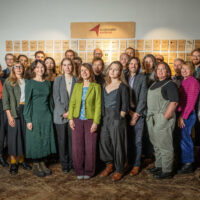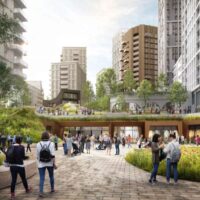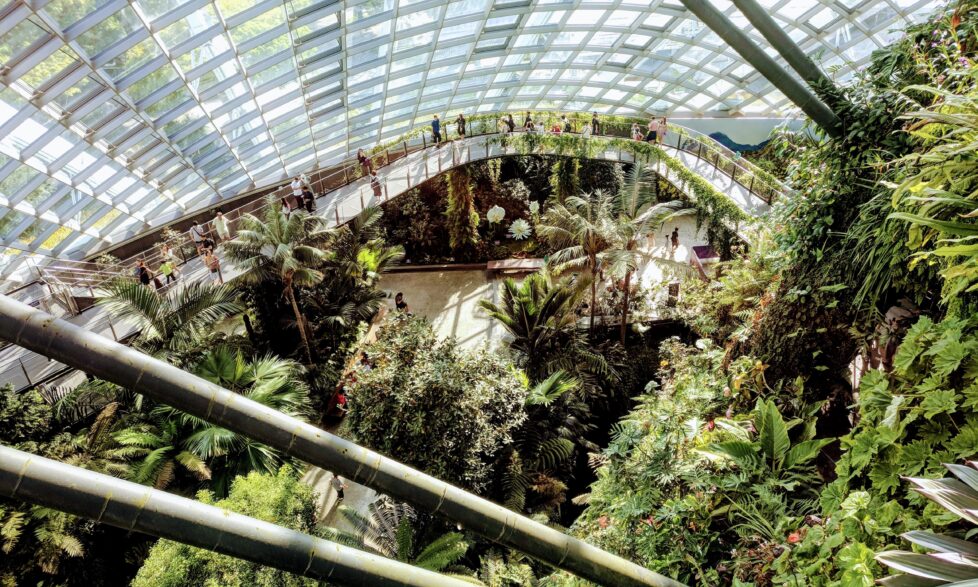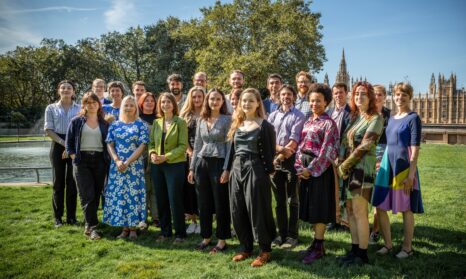Launching the Sustainable Building Materials Hub for policymakers
Building materials are set to dominate resource consumption over the coming decades, and already have a considerable environmental impact. In 2021, the buildings and construction sector accounted for around 37% of global energy-related emissions and the industry’s raw material use is expected to double by 2060.
Clearly, something must be done to help us build a more sustainable future. Bioregional has been instrumental in the development of the United Nations Environment Programme (UNEP) and Global Alliance for Buildings and Construction’s (GlobalABC) Sustainable Building Materials Hub, which we have been working on together for the past two years. This new resource centre is designed to help governments and policymakers around the world to develop the policies that are urgently needed to address the climatic and environmental impacts of buildings and construction.
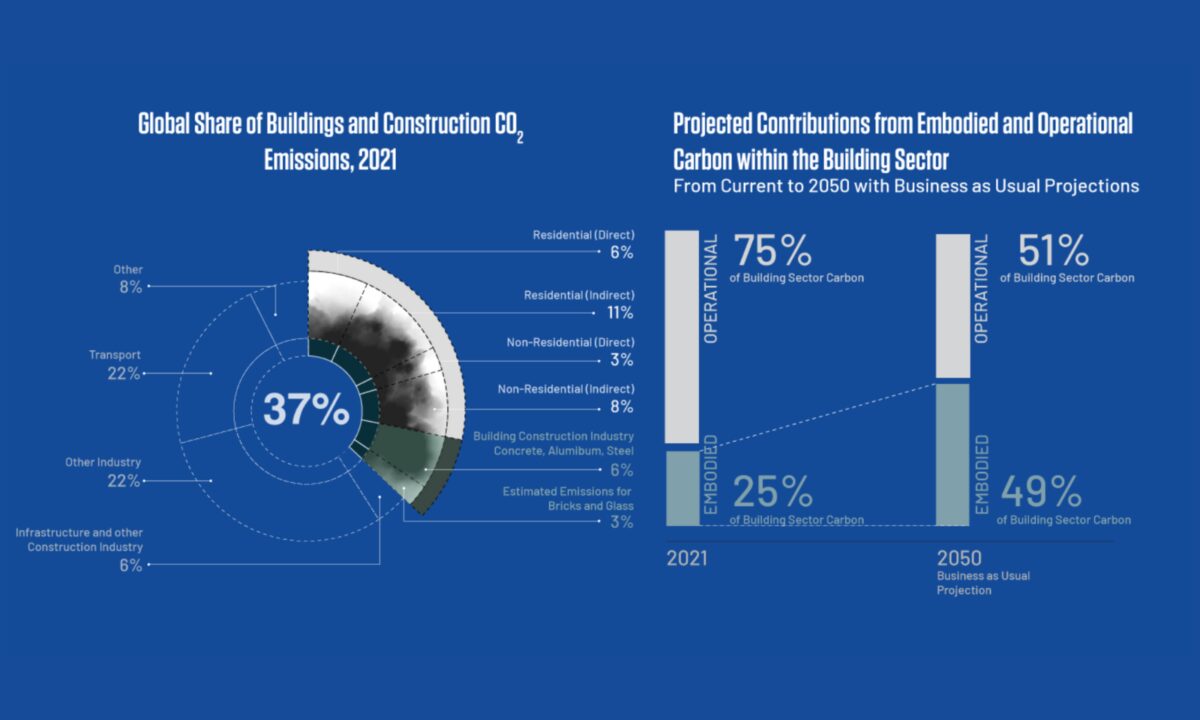
On Wednesday 13 September, Bioregional helped launch the Hub alongside UNEP and the GlobalABC during World Green Building Week 2023.
The event was chaired by our CEO and co-founder Sue Riddlestone OBE, who set the scene by highlighting the urgent need to reduce the environmental impact of building materials. We heard from expert speakers who set out how the Hub will help policymakers address this challenge through actions such as building code development, public procurement, and supporting market transformation towards alternative, lower-impact materials.
Watch the full webinar below and click here to access a PDF of the slides.
Mona Mohammed, Programme Officer at the UNEP Life Cycle Initiative, introduced the Hub, its purpose, and how it would grow and develop over the coming years.
The Hub has been developed as part of the Transforming the Built Environment through Sustainable Materials project, which supports sustainable construction approaches in Bangladesh, India, Ghana, and Senegal. Beyond working specifically with these countries, the project also seeks to highlight the use of sustainable materials in high-level international processes, such as the upcoming COP28.
As part of that mission and the GlobalABC’s mission to support governments and policymakers and advocate for the decarbonisation of the building and construction sectors, the Materials Hub became a really important next step for us.
Mona Mohammed, Programme Officer, UNEP Life Cycle Initiative
Mona also presented findings from a new flagship study published by UNEP, GlobalABC, and Yale Center for Ecosystems and Architecture (CEA), Building Materials And The Climate: Constructing A New Future. If we continue business as usual, the report predicts that embodied carbon will contribute to 49% of all building emissions by 2050. Mona stressed the importance of promoting a whole life cycle approach and the three strategies that can enable this: avoid, shift and improve.
This study is one of more than 200 resources featured on the Hub, covering a wide range of geographies, materials and building uses. These include research papers, case studies, tools, databases, and policy briefs that can assist governments and other stakeholders in driving innovation and market transformation towards more sustainable materials.
You do not need to be a GlobalABC member to contribute - anyone can submit suggestions for resources here.
"I’d like to say a big thank you to the working group – a diverse collection of sustainable buildings experts from around the world – who were integral in shaping the Hub over the last two years,” said Stewart Muir, Senior Technical Consultant at Bioregional.
The Hub will make it easier for policymakers to find credible information on more sustainable building materials. We have found many examples of lower carbon materials and more circular approaches being used successfully. These now need to become mainstream and form the basis of actionable policies at a country level.
Stewart Muir, Senior Technical Consultant, Bioregional
Finally, Nicholas Ramirez, Executive Director at the Green Building Council of Costa Rica, one of several experts who contributed to the Hub’s development, provided examples of how Costa Rica is tackling the decarbonisation of the building sector and gave an end-user perspective of how the Hub could be used to further support decarbonisation and resource efficiency.
Resources like the Sustainable Materials Hub can be very useful, not just for the technical resources themselves but also help Costa Rica become a testing ground for certain policies, the impact and scope they can have, and how quickly they can move the needle towards decarbonisation. This is something that will be very useful to us in implementing our National Decarbonization Plan, as well as our NDCs and the National Strategy of Circular Economy.
Nicholas Ramirez, Executive Director, Green Building Council of Costa Rica
We’d like to thank all the speakers and attendees for joining us in such an inspiring session.
Please explore the Sustainable Building Materials Hub here and share it with your peers and colleagues.
